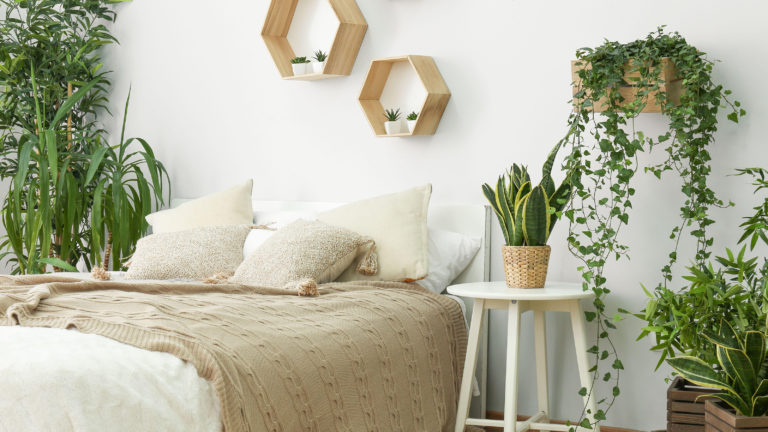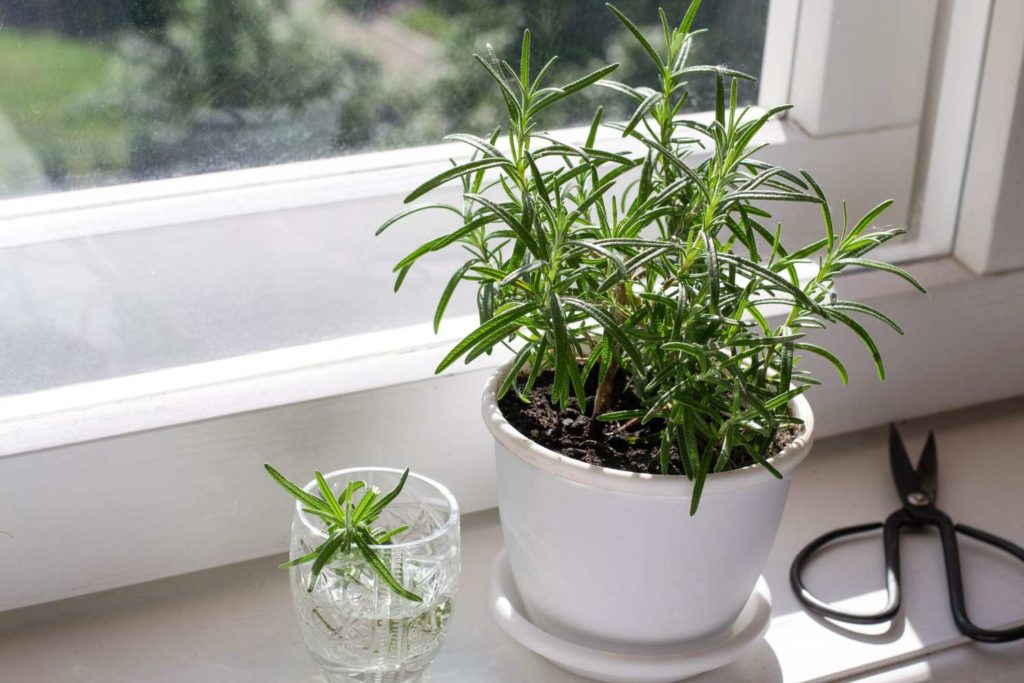- General
- Updated on June 23, 2025
Indoor Plants and Better Sleep: Can Greenery Help You Rest More Soundly?

Introduction
In today’s fast-paced world, quality sleep has become a luxury. Between endless screen time, stress, and artificial lighting, many people struggle to wind down at night. While most solutions focus on supplements or sleep hygiene routines, a natural and often overlooked remedy may already be sitting in your living room: indoor plants.
Indoor greenery does far more than beautify your home—it may also play a role in improving your sleep environment. But can plants actually help you sleep better? Let’s explore the science, psychology, and practical benefits behind bringing nature into your bedroom.
The Link Between Nature and Restorative Sleep

Nature has long been associated with relaxation and rejuvenation. Spending time in green spaces has been shown to lower cortisol levels, reduce anxiety, and stabilize mood—all of which contribute to better sleep. Indoor plants offer a small but powerful way to bring nature inside, especially for people living in urban environments with limited access to the outdoors.
While plants may not be a miracle sleep cure, several mechanisms explain how they can positively influence your ability to fall and stay asleep.
1. Improved Air Quality Means Easier Breathing
One of the most well-documented benefits of indoor plants is their ability to clean and purify the air. During photosynthesis, plants absorb carbon dioxide and release oxygen. Some species also remove airborne toxins such as formaldehyde, benzene, and trichloroethylene.
Cleaner air can help reduce:
- Allergic reactions
- Respiratory irritation
- Dry throat and sinus congestion
- Nighttime coughing and snoring
Breathing more easily leads to deeper, uninterrupted sleep. Plants like snake plants, peace lilies, and aloe vera are particularly effective air purifiers and are safe to keep in bedrooms.
2. Plants Increase Humidity—Naturally
Dry indoor air, especially in colder months or air-conditioned environments, can cause dry skin, throat irritation, and nosebleeds—all factors that can disrupt your sleep. Many indoor plants release moisture into the air through a process called transpiration.
By increasing humidity, plants create a more comfortable microclimate that supports better breathing and reduces nighttime dryness. Good options include:
- Areca palm
- Boston fern
- Spider plant
A more humid bedroom environment can reduce respiratory issues and lead to a smoother, more restful sleep cycle.
3. Reduction in Stress and Anxiety Levels
Stress is a leading cause of sleep problems. Intrusive thoughts, tension, and mental fatigue make it difficult for the body to wind down. Studies show that the presence of indoor plants lowers blood pressure, heart rate, and stress hormones, helping create a calmer environment.
Simply interacting with or viewing plants can activate the parasympathetic nervous system—the body’s “rest and digest” mode. This calming effect can prepare your body and mind for a more restorative sleep.
A few plants known for their soothing presence include:
- Lavender (for its natural aroma)
- Chamomile (also used as a sleep tea)
- Valerian (with sedative compounds in its roots)
4. Some Plants Release Sleep-Enhancing Aromas
Aromatherapy and sleep go hand-in-hand. Several indoor plants emit natural scents that promote relaxation and reduce insomnia. These aren’t overpowering like synthetic sprays—instead, they subtly scent your bedroom in a therapeutic way.
Notable aromatic plants for sleep include:
- Lavender: Reduces anxiety and lowers heart rate
- Jasmine: Promotes deeper sleep and may reduce restlessness
- Gardenia: Has a mild sedative effect, shown in some studies to improve sleep quality
Positioning one of these near your bed or window may help signal your brain that it’s time to rest.
5. Plants Enhance Sleep Through Psychological Comfort
Beyond the physical benefits, plants offer emotional and psychological reassurance. They symbolize life, growth, and calm—qualities that positively influence mental well-being. For people who suffer from racing thoughts or nighttime anxiety, simply seeing greenery may create a sense of peace and control.
Caring for plants also encourages routine and mindfulness, which can be grounding and help establish healthy bedtime habits. Tending to your plants at the end of the day can become part of a soothing nighttime ritual.
Choosing the indoor plants for better sleep
If you’re planning to bring greenery into your sleep space, here are some ideal options:
| Plant | Key Benefit |
|---|---|
| Snake Plant | Purifies air, produces oxygen at night |
| Lavender | Reduces stress, induces calm through scent |
| Peace Lily | Cleans air and increases humidity |
| Jasmine | Known for sleep-promoting fragrance |
| Aloe Vera | Improves oxygen levels and needs minimal care |
Avoid plants that require high maintenance, release strong pollen, or are toxic to pets if you share your bedroom with animals.
Simple Tips to Maximize Benefits
- Don’t overcrowd your space: One or two well-placed plants can do the job—no need to turn your room into a jungle.
- Keep them clean: Dust on leaves can hinder air purification. Wipe gently with a damp cloth every few weeks.
- Place strategically: Near windows or areas where you breathe easiest at night.
- Consider lighting: Choose low-light plants if your room lacks natural sunlight.
- Use well-draining pots: To avoid mold or overwatering issues.
Also Read: The Health Effects of Wi-Fi Radiation: What the Research Says
Conclusion
While indoor plants aren’t a replacement for medical sleep treatments or professional advice, they are a powerful, natural addition to a sleep-supportive environment. By improving air quality, reducing stress, enhancing humidity, and contributing to emotional well-being, they offer holistic support for better sleep.
Incorporating just a few carefully chosen indoor plants into your bedroom might be the easiest, most beautiful step you can take toward a deeper, more restful night’s sleep.
So if you’re tossing and turning at night, maybe all you need is a little more green.
Join the discussion
Related Articles
No results available
ResetTrending Articles


- General
- Updated on December 16, 2025


- General
- Updated on December 15, 2025


- General
- Updated on December 11, 2025


- General
- Updated on December 11, 2025


- General
- Updated on December 11, 2025


- General
- Updated on December 2, 2025


- General
- Updated on December 5, 2025


- General
- Updated on November 27, 2025


- Health
- Updated on November 24, 2025


- General
- Updated on November 24, 2025
No results available
Reset


